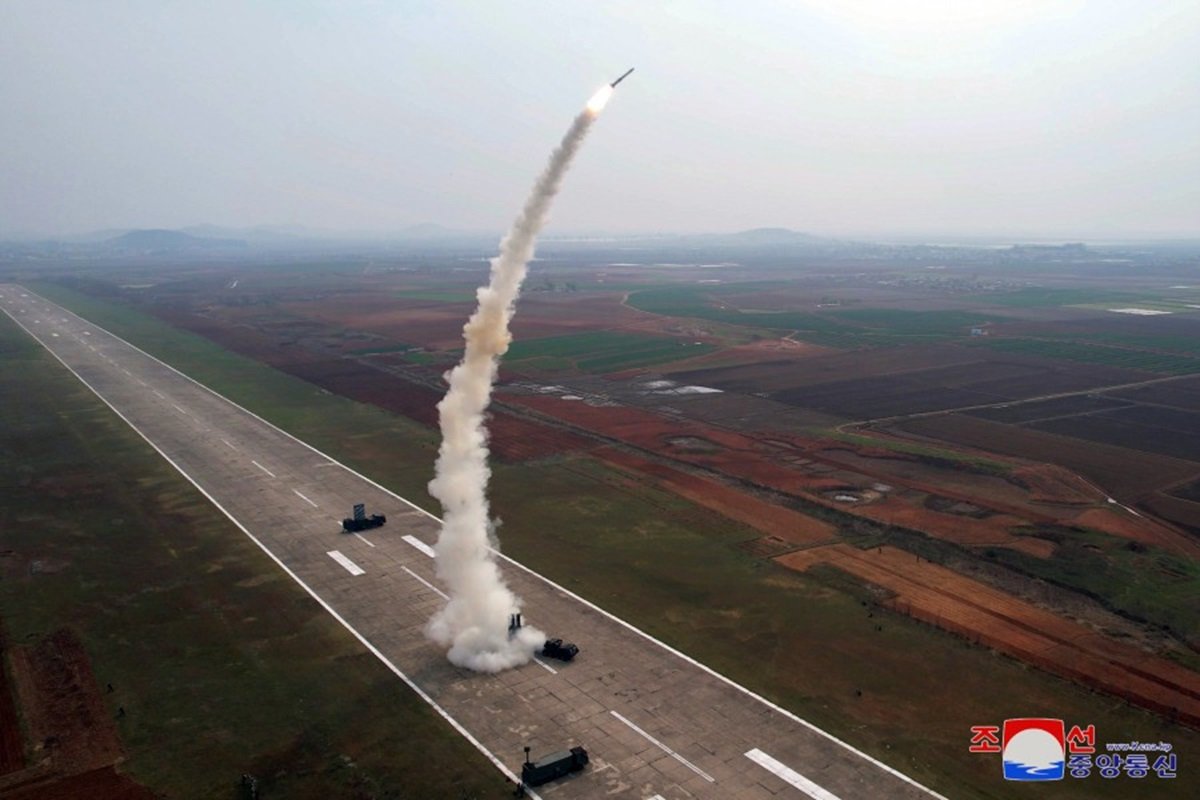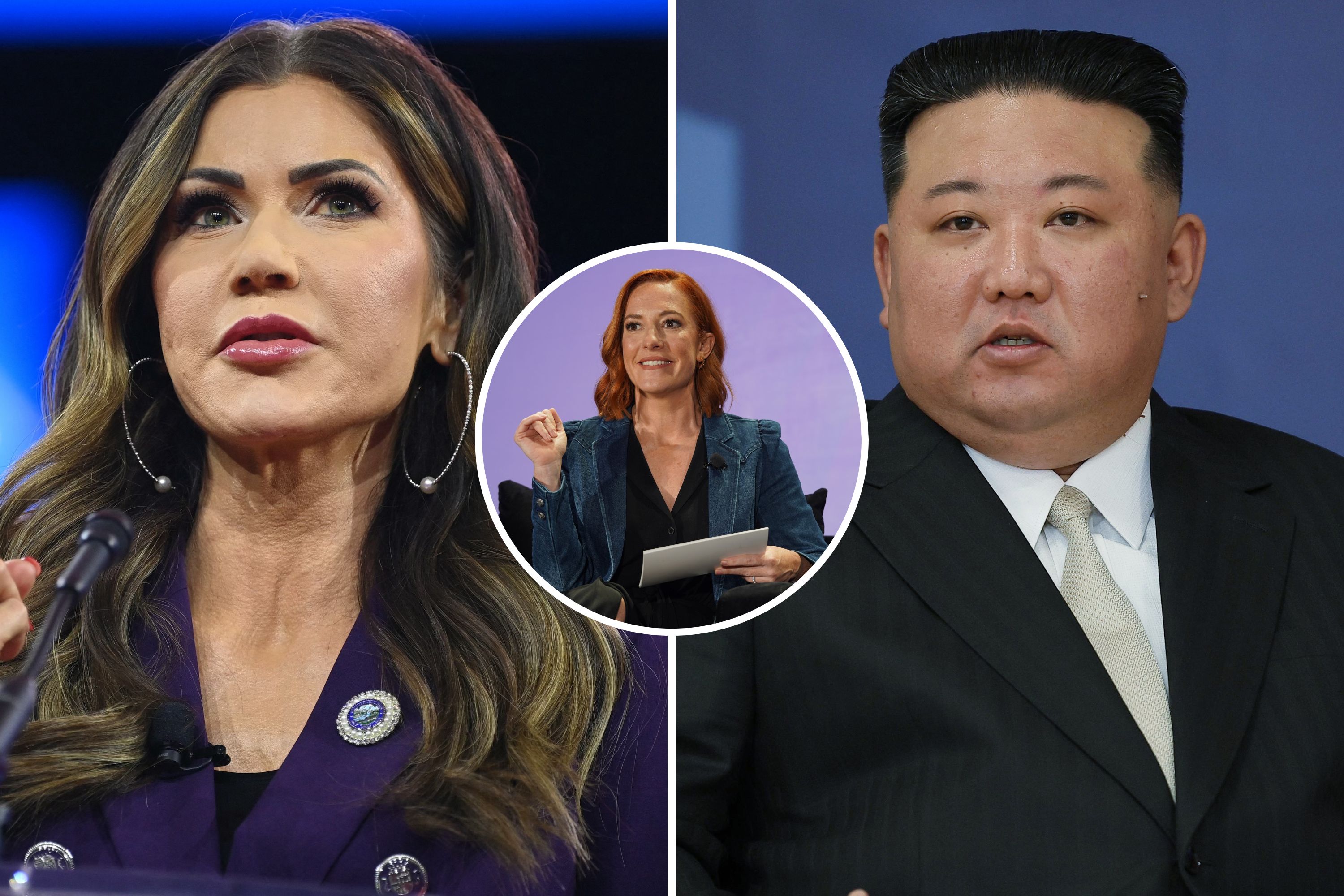North Korea says it has conducted a test on its "super-large" warhead, as the Kim Jong Un regime continues to boost its long-distance strike capabilities.
The warhead underwent a "power test" on Friday, state-run Korean Central News Agency (KCNA) announced Saturday, adding that the warhead was designed to be fitted to the nuclear-capable Hwasal-1 Ra-3 strategic cruise missile.
Tensions on the Korean Peninsula are at their highest in decades following the North's record number of missile tests last year; spy satellite launches by both Seoul and Pyongyang to keep tabs on each other; and Kim's amendment to his country's constitution to label the South as the "primary foe."
Also on Friday, North Korea test-fired its new Pyoljji-1-2 anti-aircraft missile in the Yellow Sea, the KCNA wrote, adding that the launch had achieved its objective.
The North Korean Embassy in Beijing, China, and Hawaii-based U.S. Indo-Pacific Command did not immediately respond to written requests for comment.

"Presumably 'Hwasal-1 Ra-3' is the same unnamed 'super-large' [warhead] tested in January, indicating a version of Hwasal-1 with a larger conventional warhead capacity, likely at the cost of range," International Institute for Strategic Studies analyst Joseph Dempsey wrote on X (formerly Twitter).
The announcement said both tests were per the North Korean General Directorate of Missiles and the Agency for Defense Development's usual work, adding that they were unrelated to the "surrounding situation" on the peninsula.
North Korea has continued its steady development of a range of weapons, to the South's chagrin in defiance of United Nations Security Council resolutions that ban such tests.
In January, the country performed what it said was its first successful launch of hypersonic warhead. Pyongyang also fired hundreds of artillery shells near the de-facto maritime border with the South, prompting evacuation orders on a pair of South Korean islands.
South Korean Foreign Affairs Vice Minister Kang Insun condemned the North's missile launches last week during a meeting with International Civil Aviation Organization Secretary General Juan Carlos Salazar. Insun said the launches present a serious threat to international civil aviation security.
Late last month, Washington and Seoul launched a task force aiming to restrict the flow of smuggled oil that fuels Pyongyang's progressing nuclear and ballistic missile programs. The U.N. Security Council has capped refined petroleum exports to the country at 500,000 barrels per annum.
The South Korean Joint Chiefs of Staff said on Monday that Pyongyang had launched a ballistic missile off the North Korean east coast, without providing more details.
Uncommon Knowledge
Newsweek is committed to challenging conventional wisdom and finding connections in the search for common ground.
Newsweek is committed to challenging conventional wisdom and finding connections in the search for common ground.
About the writer
Micah McCartney is a reporter for Newsweek based in Taipei, Taiwan. He covers U.S.-China relations, East Asian and Southeast Asian ... Read more
To read how Newsweek uses AI as a newsroom tool, Click here.






